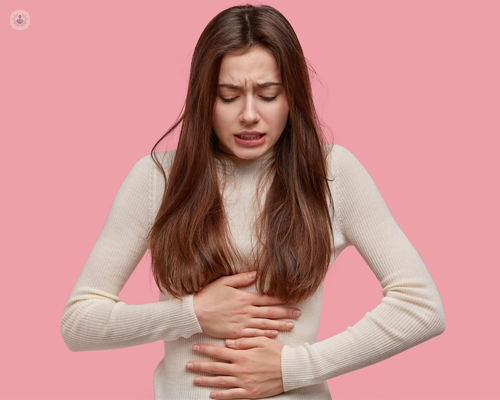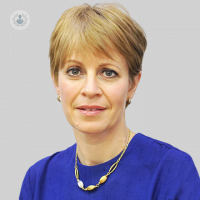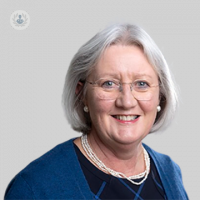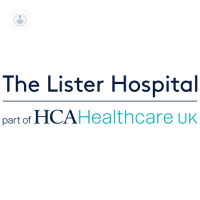Premenstrual syndrome (PMS)
Ms Evangelia Bakali - Obstetrics & gynaecology
Created on: 11-13-2012
Updated on: 12-21-2023
Edited by: Lauren Dempsey
What is PMS?
Premenstrual syndrome, more commonly known as PMS, is the name for the symptoms that women experience before they menstruate, i.e. their period. Many women experience PMS, and symptoms vary from woman to woman, though in some it can be more severe, affecting their daily life to the extent where they must seek medical help.

Who does PMS affect?
PMS can affect anyone who menstruates. Most people who menstruate will experience it in their lifetime, approximately 90% experience mild symptoms and 30% experience moderate to severe symptoms.
What causes PMS?
The causes of PMS are not fully understood. It is thought that it may be due to changes in the hormone levels that occur at some point over the menstrual cycle. It may also be caused by neurotransmitters, which are chemical substances in the blood. However, it is not clear why this affects some women more than others.
What are the symptoms of PMS?
Symptoms can vary from woman to woman, and even in the individual from month to month. They may include:
- irritability
- difficulty sleeping
- depression
- anxiety
- feeling tired
- mood swings
- feeling upset
- tender breasts
- greasy hair
- spots
- bloating
- abdominal pain
- changes to sex drive
- changes in appetite
- headaches
A small percentage of women experience premenstrual dysphoric disorder (PMDD), which shares the same symptoms as PMS but they are much more severe and intense, negatively impacting your quality of life.
How long does PMS last?
Normally the symptoms occur when you ovulate and will last for a week or two before you get your period. Symptoms will, generally, subside once your period begins. PMS symptoms can occur any time after ovulation and last up to 5 days once menstruation begins.
How do I know if I'm experiencing PMS?
If you are experiencing any of the aforementioned symptoms in the days prior to your period, you are likely experiencing PMS.
What are the four types of PMS?
A way of classifying PMS is by identifying the predominant symptoms experienced. The four types are:
- PMS-A (anxiety)
- PMS-C (cravings)
- PMS-D (depression)
- PMS-H (hyperhydration; bloating and water retention)
Commonly, women experience more than one of these symptoms at once categorising the type of PMS is quite difficult.

How can I make PMS go away?
PMS can be managed at home or through lifestyle changes. It’s important to get regular exercise and keep to a healthy, balanced diet. Symptoms of stress and anxiety can be managed through activities such as yoga or meditation.
Pain caused by PMS can be reduced through over-the-counter painkillers, e.g., Ibuprofen. Studies have also found evidence that certain vitamins and minerals, such as calcium and B6, supplements relieve symptoms of PMS but it’s important to speak to your doctor before taking any supplements.
Does PMS worsen with age?
PMS is most likely to affect women in their 30s. Commonly, symptoms will worsen from the late 30s or 40s until just before menopause, the known as the perimenopause. PMS will stop after menopause.
Is PMS serious?
PMS is a very common and natural part of getting a period. It can be managed easily and effectively if symptoms are mild. In more severe cases, or in cases of PMDD, can interfere with your routine and quality of life on a monthly basis.
When should I see a doctor?
You should see a doctor if your symptoms are affecting your daily life, and the measures you are taking to manage your PMS are not working. It helps to keep a symptom diary when you experience PMS, so you can show your doctor or specialist your frequent symptoms.
How is PMS diagnosed?
There is no single test that can diagnose PMS. A diagnosis can only be given with a well-logged history of symptoms. It’s advised that before you go to your doctor, you should keep detailed notes of your symptoms for at least two menstrual cycles to bring to your GP or gynaecologist.
How is PMS treated?
Treatments for PMS are divided into two categories; hormonal or non-hormonal.
Hormonal treatments include:
- Continuous combined pills, containing drospirenone (type of progesterone)
- Patches or gels containing oestrogen hormones, which don’t function as contraception.
- GnRH analogue, which is a type of injection that is seen as the last resource treatment as it causes temporary yet reversible menopause.
Non-hormonal treatments that may be offered are:
- Antidepressants, that will be prescribed to be taken either daily for two weeks prior to your period or throughout your cycle.
- Water tables
- Counselling or talking therapy
Can you have surgery for PMS?
If other treatment options have been exhausted and symptoms remain severe, a hysterectomy and/ or removal of both ovaries may be considered. These procedures are irreversible and the patient won’t be able to ovulate or carry a pregnancy.













